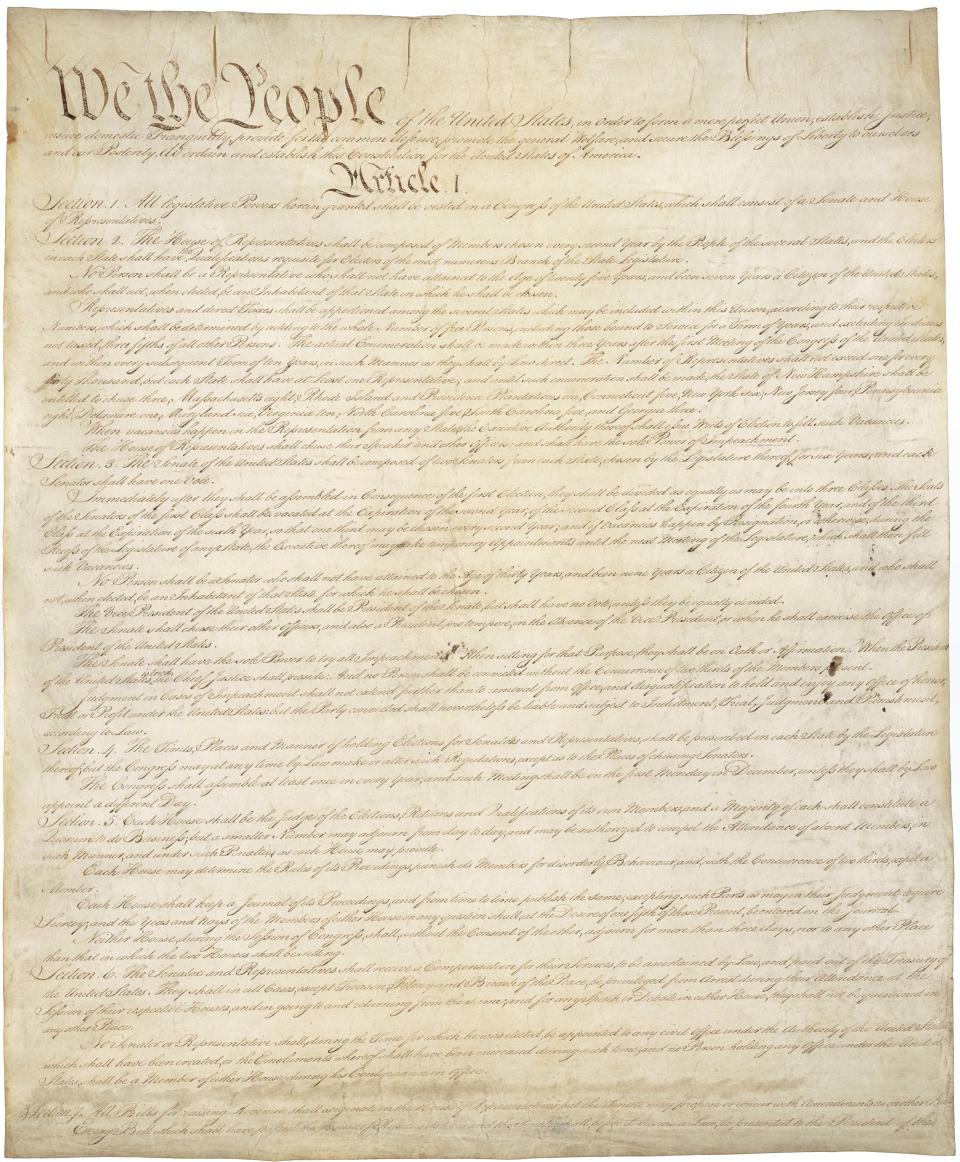We need to do a better job teaching citizens about the First Amendment
For a country that purports to value our First Amendment right to freedom of speech, it has become clear that some of our elected officials don’t understand it.
State legislatures across the country have passed bill after bill that violate the First Amendment’s free expression protections – protections that limit the government’s ability to infringe on individuals’ speech.
Yet a recent survey by the Freedom Forum of more than 3,000 Americans found that 94% value the First Amendment as vital, and more than half say it should never be altered.
Now more than ever, we need a renewed focus on civic education to ensure Americans understand their constitutional rights. In addition, one study from the Freedom Forum suggests nearly one in five Americans cannot name a single First Amendment freedom.
Still, elected officials are regularly quoted in the media, espousing plans to require social media platforms to carry certain speech or barring them from shutting down certain accounts. Ask honest constitutional scholars, and they’ll assure you these plans are unconstitutional.

This summer, a federal judge in Florida temporarily barred the state from enforcing a new law that targeted social media platforms that shut down accounts of political candidates or “journalistic enterprises,” allowing up to $250,000 in fines per day.
Texas Gov. Greg Abbott has signed several similarly unconstitutional bills. One, House Bill 20, purports to restrict social media platforms when it comes to content moderation. Another, Senate Bill 4, aims to require Texas sports teams to play the national anthem.
The Arizona State Legislature has considered a law that would require parents to opt-in to any curriculum that addresses gender identity or gender expression of sexuality – effectively limiting schools’ ability to teach about historical events including the Stonewall riots. It also restricted the teaching of HIV and AIDS awareness. Doing so represents a clear violation of the First Amendment. Gov. Doug Ducey – a Republican – vetoed Senate Bill 1456, yet lawmakers persisted and reintroduced the measure.
Better civics education
So why are all these lawmakers, many of whom graduated from elite law schools, proposing laws that contravene the First Amendment? Perhaps it’s political theater. Or perhaps they simply need a bit of civics education.
Like our elected officials, it seems even we voters need a refresher course on these issues. Only 36% of Americans know that companies like Twitter and Facebook are not liable for the content users post on their platforms, while just over half of respondents in the Freedom Forum survey knew the First Amendment protected flag burning as a form of free speech.
In numerous opinions during the past century, the Supreme Court has made clear that there are stringent limits placed upon the government when it comes to regulating speech.
As recently as June, the Court ruled 8-1 in favor of a high school student who was sanctioned by her school for a social media post that contained a well-known, four-letter expletive. Although the court stopped short of saying public school officials could never sanction students for off-campus speech, it made clear that some speech is protected by the First Amendment.
In November, the Supreme Court will hear a case asserting that the city of Austin, Texas exceeded its authority to regulate speech when it enacted an ordinance that treats on-premises signage differently from off-premises signage.
The court’s decision could give federal, state and local governments much greater latitude to regulate speech if the justices decide to narrow the types of restrictions to which their highest level of scrutiny applies. In the Austin case, this would allow the city to regulate on-premise and off-premise signs differently – including banning digital billboards while permitting on-site digital signage.
Without a greater emphasis on civic education, and First Amendment rights in particular, many of us will continue to lack the knowledge and tools we need to fully participate in our governance, and taxpayers will continue to foot the bill for legal challenges to state laws that are plainly unconstitutional – laws that should never have been proposed or passed in the first place.
Our nation’s first president, George Washington, famously said that without free speech "dumb and silent we may be led, like sheep to the slaughter." Free Speech Week offers a great reminder that many of us need to reeducate ourselves about the collective rights and obligations that we have as citizens living under a republican form of government.
Amy Kristin Sanders is an associate professor of journalism and law at The University of Texas at Austin, where she studies global free expression rights.
You can read diverse opinions from our Board of Contributors and other writers on the Opinion front page, on Twitter @usatodayopinion and in our daily Opinion newsletter. To respond to a column, submit a comment to letters@usatoday.com.
This article originally appeared on USA TODAY: Americans don't know enough about the protections of First Amendment

 Yahoo Movies
Yahoo Movies 
